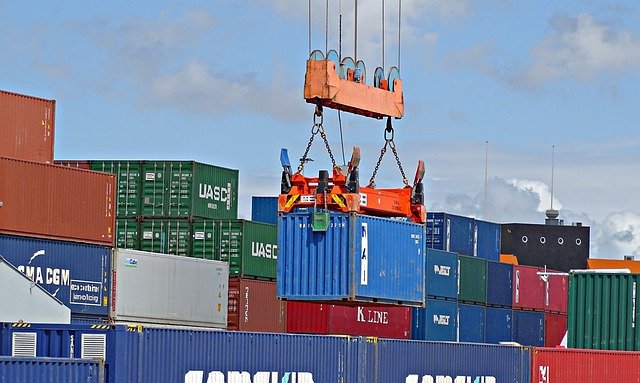-
The Bureau of Customs will “consider” adjustments in export declaration provided adjustments can be “reasonably explained and coupled with the appropriate documentary evidence”
-
Assessment and Operations Coordinating Group Memo No. 534-2021 clears up issues on fines arising from clerical errors raised by exporters under Customs Administrative Order No. 01-2020
-
Minor adjustments due to extraneous factors beyond the control of the exporter may not equate to an error under CAO 01-2020, according to AOCG memo 534-2021
-
Exporters said fines on inadvertent errors pose undue financial burden
The Bureau of Customs (BOC) will “consider” adjustments in export declaration provided the adjustments can be “reasonably explained and coupled with the appropriate documentary evidence”. This is the gist of BOC Assessment and Operations Coordinating Group (AOCG) Memo No. 534-2021 dated October 4.
The memo clarifies fines and penalties for clerical errors imposed under Customs Administrative Order (CAO) No. 01-2020 issued in March 2020.
READ: Rules on customs fines for goods declaration errors outlined
While AOCG memo 534-2021 said “minor adjustments due to extraneous factors beyond the control of the exporter may not equate to an error”, it falls short of explicitly saying whether exporters will not be fined for errors they claim are beyond their control.
The memo does, however, say adjustments in the export declaration may be considered “without prejudice to the issuance of any demand for payment should there be subsequent findings of errors or any violation contemplated under CAO 01-2020 after the release of the shipment from customs jurisdictions.”
PortCalls reached out to AOCG deputy commissioner Edward James Dy Buco to confirm if exporters can now make adjustments to their export declaration without being fined so long as they provide reasonable explanation and documentary evidence. He has yet to reply as of this writing.
Earlier this year, the Philippine Exporters Confederation, Inc. (PHILEXPORT) called for the suspension of CAO 01-2020, noting that paying penalties for “inadvertent” clerical errors is a “huge financial burden” for exporters.
Every clerical error in the lodgement of goods declaration is fined P5,000.
PHILEXPORT had proposed CAO 01-2020 be suspended while under review “to prevent the further bleeding of exporters, especially the MSMEs that are still trying to recover” from the effects of the COVID-19 pandemic.
Exporters said they sometimes make changes in the export declaration due to reasons beyond their control, including foreign exchange fluctuations, buyer’s request for changes in the goods description, and delay in vessel arrival. They also claimed the accurate data needed for lodgment cannot, in most cases, be initially determined.
READ: Mindanao exporters seek exemption from BOC policy on clerical errors
As a background, AOCG memo 534-2021 also noted exporters’ claims that “the preparation and submission of export declaration entail some adjustments in the entries not necessarily stemming from inadvertence but due to varying business conditions such as cargo handling and cargo measuring factors, beyond the exporters’ control.”
The memo cited the exporters’ position that the fine should not be imposed because the errors are inadvertent within the scope of CAO 01-2020.
AOCG memo 534-2021 acknowledged that “the law does not distinguish what kind of mistakes are covered by this provision. Instead, it only requires that the commission is not tainted with fraud.”
In order to address stakeholders’ concerns, the AOCG memo said distinguishing “what constitutes inadvertent and clerical errors and the instances as to when the fees may be imposed” under CAO 01-2020 from the proposed adjustments in the final export declaration is “material”.
The memo said “errors contemplated under CAO 01-2020 is committed when there is an incorrect or erroneous input of data in the goods declaration while drafting, copying or transposing a document, provided it is not attendant with fraud and not due to gross negligence, on the following:
- Consignee’s name
- Importing vessel or aircraft
- Port of departure
- Port of destination and date of arrival
- Number and/or marks of packages
- The quantity, the nature and the correct commodity description of the goods contained therein
- Value as set forth in the invoice and packing list
- Such other information as may be required by rules and regulations”
“On the other hand, minor adjustments due to extraneous factors beyond the control of the exporter may not equate to an error” under CAO 01-2020, “such as the following:
- Changes in the net weight of the shipment due to the difference in actual volume of goods loaded vis-à-vis the declared volume prior to loading by reason of cargo handling or cargo measuring factors
- Changes in shipping details upon the advice of the shipping lines, provided errors in encoding the shipping details are considered inadvertent unless the same are covered by such advice
- Any other circumstance which necessitates adjustments to accurately reflect the information required for the export declaration.”
Pursuant to Section 5 of CAO 01-2020 and CAO 02-2020, which provides guidelines on dispute settlement and protest, a stakeholder may exercise or avail of the remedy of a formal customs dispute settlement arising from customs valuation, rules of origin, tariff classification, and other customs issues, the memo said. – Roumina Pablo





